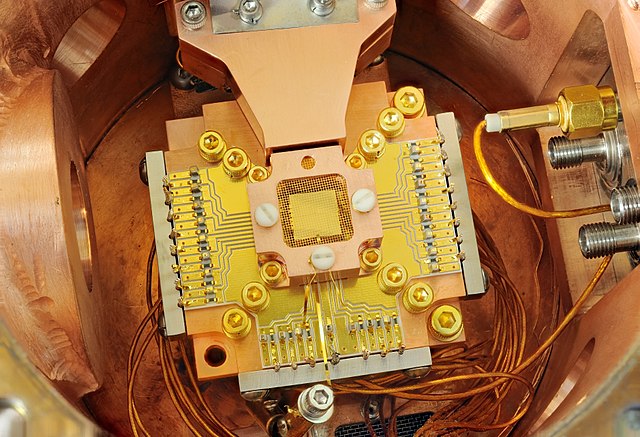
Quantum Computing
What Is Quantum Computing?
The subject of quantum computing remains largely confined to the realm of exclusive coffee table discussions among theoretical physicists like Fernando Brandao and Oskar Painter. This suggests that the topic of quantum computing may fly way over the average person’s head, fascinating as it is. One of the best ways to shed light on this esoteric subject is to compare it with classical computing, and then outline the underlying quantum principles in a more relatable, albeit cursory way.
The Similarities
For example, this Caltech article explains that both quantum and classical computers — yes the one you are currently using — tend to have microchips, circuits, and logic gates. Algorithms written by programmers, and increasingly by AI, control the operations using binary code and ones and zeros in both classical and quantum computing. Furthermore, both quantum and classical machines employ physical objects to encode binary data. However, this is where the similarities end.
The Quantum Leap
While the computer you are reading this on encodes data in two states, either on or off (binary digits), Quantum computers have taken a significant quantum leap forward. They use quantum bits (or qubits) and process data differently. While today’s computers process using ones and zeros, a qubit can be a superposition of one and zero simultaneously until its state is measured. Also, these states of multiple qubits can be quantum mechanically entangled. Superposition and entanglement are what give quantum computers powerful capabilities extending beyond that of classical computing.
The Future
While the potential of quantum computing is indeed profound, the full extent of its impact on modern computing capabilities remains uncertain. Quantum computers have existed in a nascent and experimental form for roughly a decade and are not yet utilised in industry or for practical everyday tasks. For now, classical computing reigns supreme.
However, quantum computing made an important experimental breakthrough in 2019 when it completed a calculation in a fraction of the time a classical computer would have required. While this is considered proof of principle it will be years before quantum computers will be solving practical problems like this in the everyday, or grace the desks of everyday users!
If you are interested in studying Science or Physics, Oxford Open Learning offers you the chance to do so at a variety of levels. You can also Contact Us by clicking on the link here.